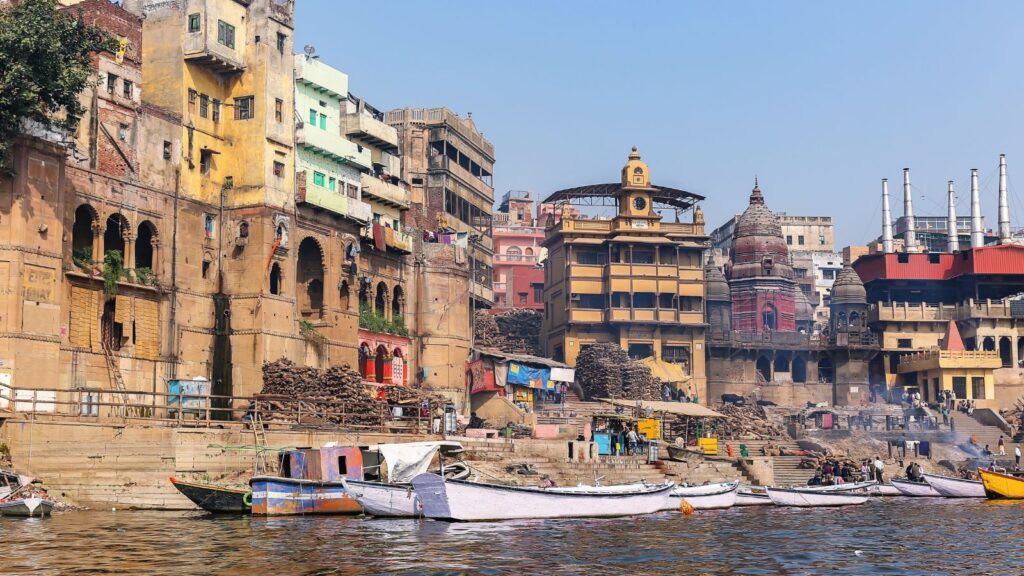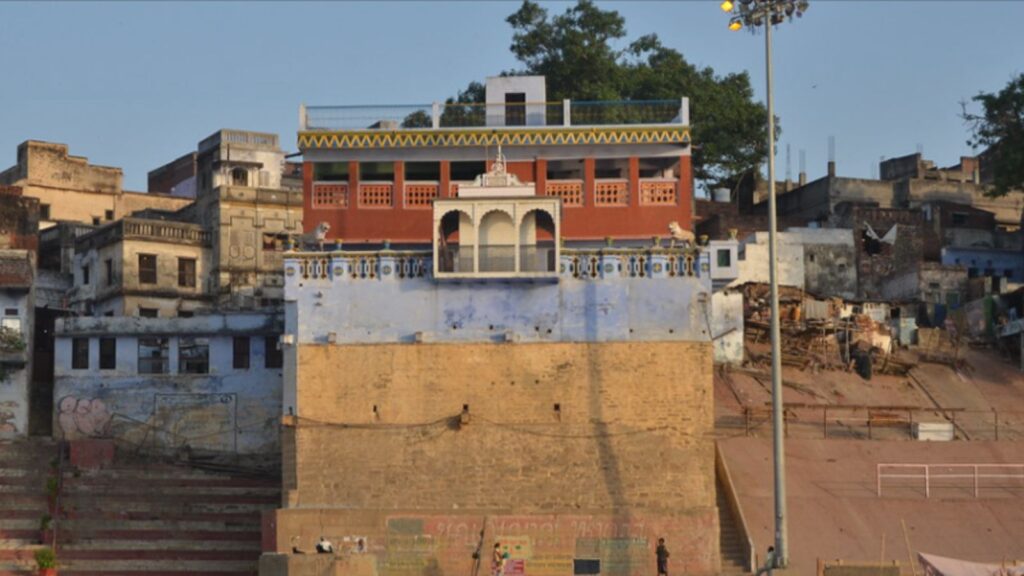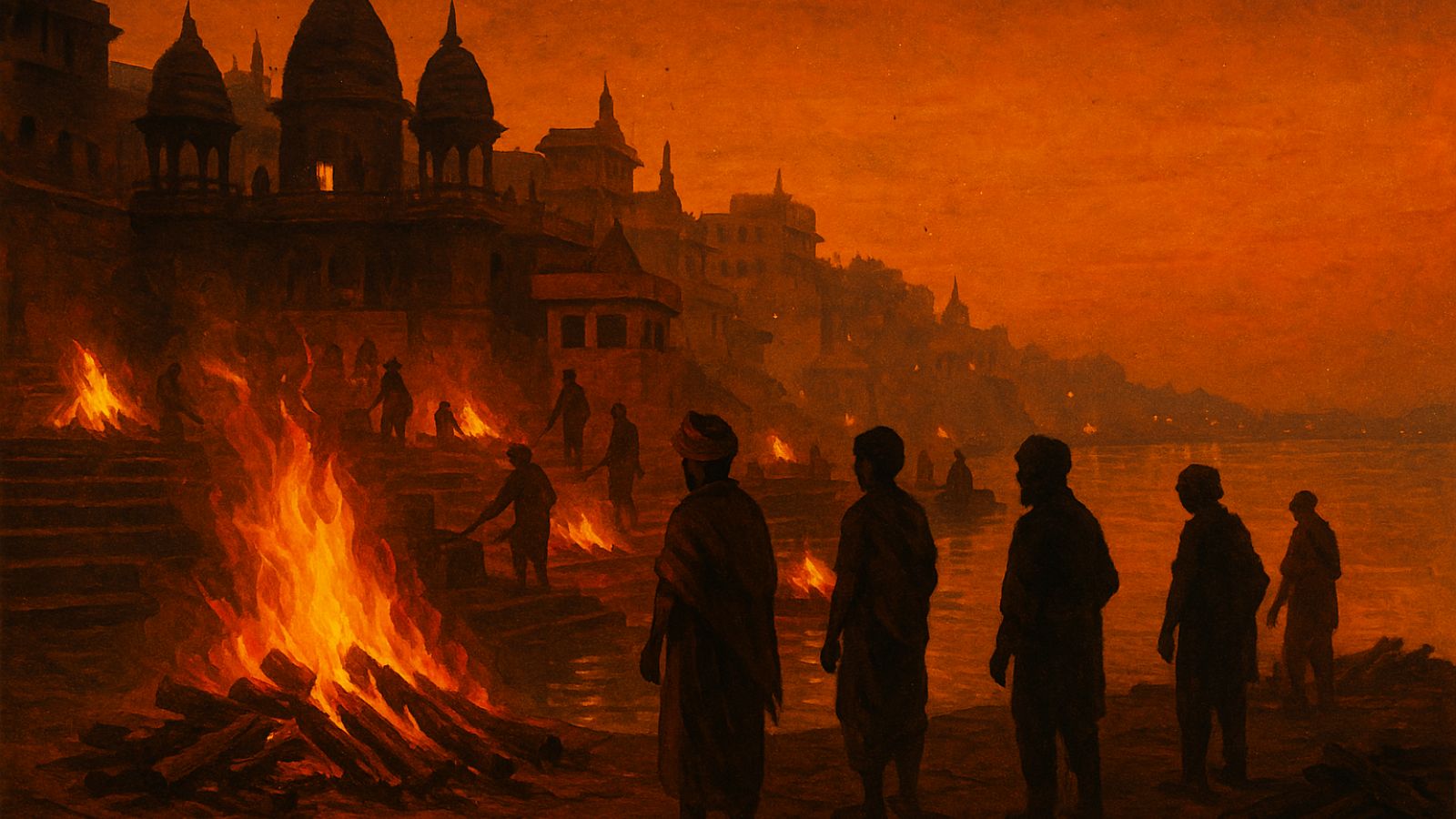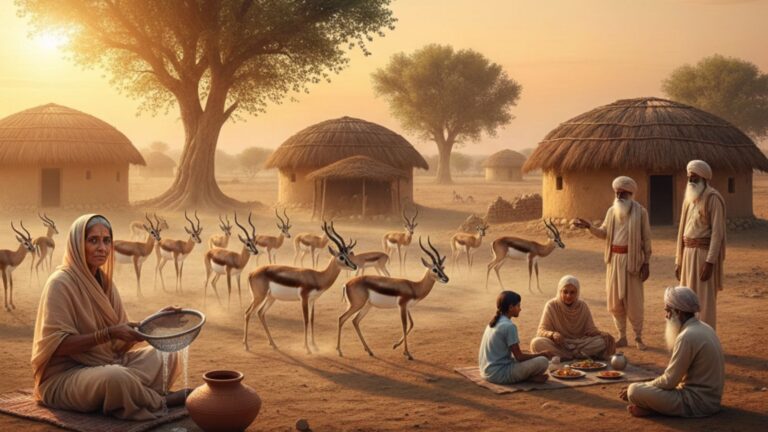The Doms is a community whose presence is inseparable from Varanasi’s cremation ghats. For centuries, they have overseen cremations at Manikarnika and Harishchandra, the two principal burning ghats on the Ganga. Their work is ritually central: arranging wood, building pyres, and guarding the akhand jyoti—the sacred flame believed to be burning without interruption for centuries. Every funeral pyre is lit from this flame; never with a matchstick. Families seeking it pay a fee, usually ₹500, to the Dom Raja, the hereditary head of the community, who provides the pilot light.

Manikarnika Ghat, the oldest and the most sacred cremation ground of Varanasi
Nearly 35 Dom families live around the cremation grounds, active day and night. Their work is organized in shifts: senior Doms manage platforms, hand the flame to the chief mourner, and collect payments, a portion of which goes to the Dom Raja, while younger Doms assist in preparing and completing the rites. This system, passed down through custom, ensures the ghats never fall silent. In the rare instance when no bodies are brought for cremation, the Doms burn bundles of kush grass on the pyres
The work of Doms takes a heavy physical toll. Constant exposure to fire, ash, and dense smoke leaves them vulnerable to chronic respiratory illness, lung infections, and burns. Reports note that men often work 18 to 20 hours a day on the ghats, with little protection from the harmful effects of inhaling smoke and handling pyres. These occupational hazards remain a harsh but largely invisible reality of their sacred duty.

Dom Raja Palace, the residence of the Dom Raja, the hereditary head of the Dom community at the Man Mandir Ghat
Their role is also woven into legend. It is said that King Harishchandra, famed for his devotion to truth, once worked under a Dom known as Kallu Dom at the cremation ground as part of his trials.
The community shot to prominence in recent years! When Narendra Modi contested from Varanasi in 2019, Dom Raja Jagdish Chaudhary was among his official proposers, drawing national attention to the community’s enduring legacy in the city’s cultural fabric.
Despite social stigma, the Doms continue to help thousands of families complete last rites in Kashi each year, sustaining a tradition that defines the city’s encounter with death and liberation.



